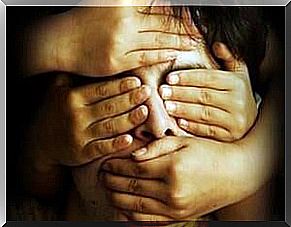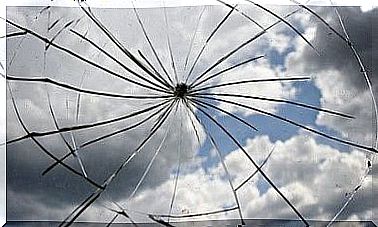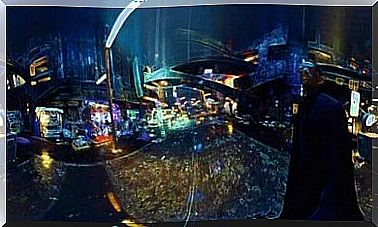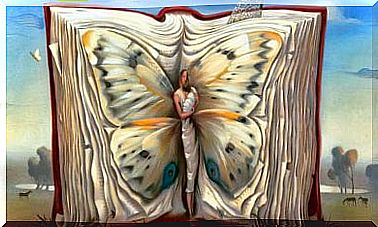Star Wars And The Search For Balance
When Star Wars was released in theaters, no one imagined what it would represent for the history of cinema, nor that after so many years the saga could win new fans, conquer new generations and collect successes. Yet it did. Star Wars today counts on whole hordes of fans of all ages and from all over the world.
It marked a before and after in the history of cinema and changed it. Although considering it the best saga in the history of cinema is a matter of taste, we can certainly say that it has changed the way we perceive cinema. On the other hand, if we decide to review the saga, we will notice the amount of time errors that can be identified. Errors that we forgive and that we understand considering the passage of time and that the original idea was not aimed as high as the final result.
Star Wars marked the beginning of the era of mass cinema, science fiction, the first special effects in an era where technology was still in its infancy. Even director Brian De Palma has come to compare it to junk food and we can say that he is partly right, but that does not take away the charm and impact it produces every time a new episode comes out in theaters. Star Wars also left us two important marketing lessons: transforming the act of going to the cinema into a real social and mass event; the expanding universe of the saga, which goes far beyond the limits of the screen: series, novels, games, and so on.
Star Wars marked the beginning of modern cinema, of a new era. But far beyond what it represents for the history of cinema, this saga also leaves us with important philosophy lessons, and it is precisely on this aspect that we will focus in this article. We will not talk about a particular film or one of the trilogies; we will not even dwell on the characters, on the plots or on the context, but rather on the deeper meaning of the saga, on the philosophy on which it bases its foundations.
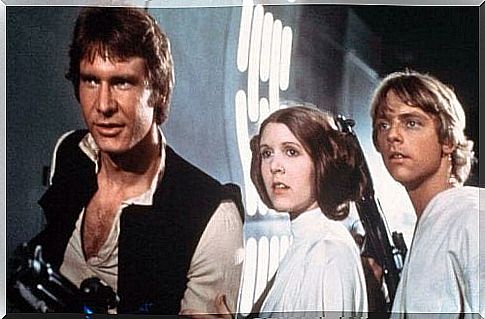
The force
Force is defined in the saga as an omnipresent energy field that connects all beings in the galaxy. This idea of an energy that connects the whole, of an omnipresent essence or power that governs the world may not seem like an absolute novelty and, in fact, it is not. Since the dawn of time, humanity has tried to give an explanation as to why the world exists and everything about it: why do plants grow? Because it’s raining? Or again, why do we exist? These are some of the questions humans have always asked themselves.
To give an explanation of why the world exists, Man has created myths, philosophy and religions. As happens in the real world, this “fiction” had to be plausible and, therefore, had to give a logical explanation of existence in the world as we know it. More philosophical and spiritual in the original trilogy and more “scientific” in the sequel, the why of the world lies in strength.
Strength resembles some answers given by the Presocrats to the why of life, but also to Buddhist philosophy, Plato and Stoicism. The Greek philosophers had to look for a principle, an origin or a source; something that could give an explanation to life, to the universe.
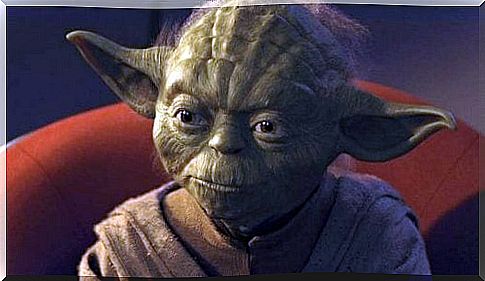
Hence the idea of the archè, the principle and source of everything. According to some philosophers such as Thales, the archè resides in the water; according to Aristotle and other philosophers, however, it has no reason to exist: it is something we cannot perceive, which causes everything else to exist. On this point, we could add that strength is the archè of this science fiction universe.
Furthermore, there are individuals who are more sensitive than others, capable of perceiving this force and connecting with it in a spiritual way. In this way, the Jedi Order was born, an ideological or religious current pursued by individuals whose sensitivity to force is very strong. The life of these Jedi revolves around the discovery and knowledge of strength, the search for peace and harmony of all beings; it is an extremely spiritual journey that reminds us of some philosophical currents, but also some religious orders.
The strength, the principle, the archè are the basis of this fictitious world. But strength is not just that, it goes much further: the Jedi must live in harmony with strength and acquire knowledge; however, this force also has a dark side, a sinister side that can prove to be a great temptation.
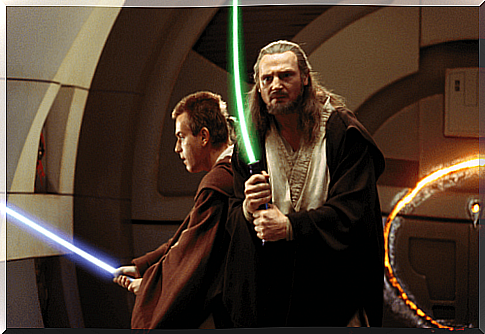
Good and Evil in Star Wars
Throughout the history of philosophy, we have seen endless theories and arguments on how to resist temptation and achieve good; the same happens with religion and, as expected, also in Star Wars . The force has two sides: one dark and the other bright, both of which are present. Yin and yang, good and evil, heaven and hell, reason as opposed to passions, light and dark ; opposites that cannot exist one without the other, in an eternal dualism.
The Jedi continue their journey along the bright side, in search of tranquility, stability or, as the Greeks said, of ataraxia. The Sith oppose the Jedi and let themselves be carried away by the dark side, linked to fear and hatred. We can associate Jedi ataraxia with Stoic philosophy, which moves away from pleasure and passions, which seeks knowledge, but which accepts things as they are.
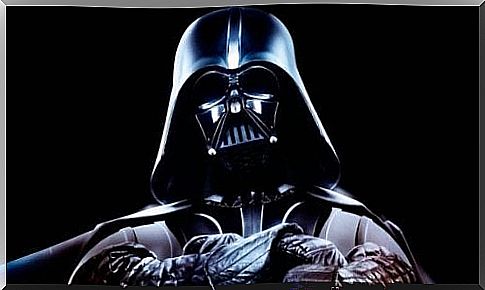
Stoic ethics leads us to a state of acceptance where we have no control over what happens, nor can we change things; therefore we begin to accept them without letting ourselves be disturbed by reality. The Jedi do something similar, although it is not easy. How is it possible to accept the death of a loved one without feeling upset? This aspect will deeply mark some characters, including Anakin Skywalker who, overcome by fear, will fall into the dark side.
Evil can be very fascinating, especially when there is suffering ; something that defines the master Yoda very well, a sort of Plato of this universe who, with his ungrammatical orations, leads us to reflect. Defeat temptations, seek balance, achieve good. All of this may sound very Aristotelian, but we can also associate the concept, if we prefer, with some religions such as Christianity.
The Sith are promoters of that letting oneself be carried away by passions, breaking with Platonism. But one has to ask: are they really evil? It seems that the good may be more a point of view than anything else, as we see in the characters of Anakin / Darth Vader and his conversion to the dark side; it is a character who, like Nietzsche, goes far beyond the concept of good and evil.
Star Wars has turned into an unmissable saga, immediately recognizable thanks to its soundtrack, its lightsabers and its trilogy (above all, the original). But it is also an example of how cinema and philosophy can merge, of how they can lead us to reflect through a world of science fiction.

